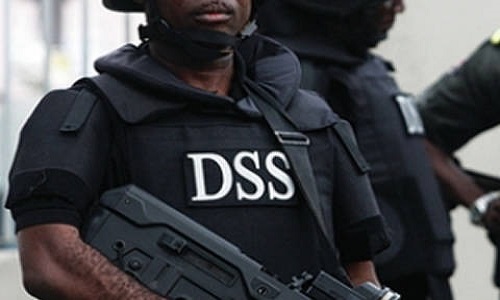Recently, a young man came to our office alongside his old father. They came to lodge a complaint. About a month earlier, they said, they got a call from an unidentified female informing them that their son was picked up by the DSS from one of the streets in Abakaliki. They quickly got to town and went to inquire at the DSS state’s command and were denied acc

ess to the facilities. They requested to know whether their son was being held at the facility and on what ground he was held. Their request was ignored, and they were asked to leave the premises. At another time, they contracted a lawyer whom they took there for intervention, we were told. The lawyer was equally turned away without seeing the detainee except that, he was told, the boy was in their custody.
It took our intervention to later find out that the boy was charged to high court for ‘kidnaping’ and was remanded in Abakaliki Prison. All the time the boy was held in their custody, he was denied access to his relatives and to legal representation.
______________________________________________
One striking feature of democracy is the rule of law. Where due process is blatantly ignored or disregarded, democracy suffers a great blow, and so does human rights. The case represented above is very common, not only with the security agency mentioned, but with many others, including the police force. It is as if, for many security agents, there are no rules guiding the procedure of arrests and detention, and that once an individual is a suspect in an offence or crime, the individual seizes to have human rights. This practice and the ideology that informs it violate international norms and practices regarding arrest, detention and trial procedures as can be found in Universal Declaration of Human Rights (UNDHR), International Convention on Civil and Political Rights (ICCPR) and Convention against Torture and Other Cruel, Inhuman or Degrading Treatment or Punishment (CAT) and Body of Principles for the Protection of All Persons under Any Form of Detention or Imprisonment. It equally negates Nigeria’s laws, including the Constitution of the Federal Republic of Nigeria (1999 as amended), Criminal Procedure Act, Criminal Procedure Code and the most recent act which merged the last two, Administration of Criminal Justice Act (ACJA, 2015). With regard to arrest and detention, there are key human rights issues that must be safeguarded as far as best international principles and practice are concerned. They include:
Right to liberty and security of person and to freedom of movement (ICCPR, 9[1], Constitution, 35[1])
Prohibition of arbitrary arrest (UDHR, 9)
Right to be informed of reasons at time of arrest and of any charges (Constitution, 36[6][a], 35[2], ACJA, 6)
Right to be brought promptly before a judge (UDHR, 10)
Right to trial within reasonable time, or release (Constitution, 36[1], ACJA)
Right to prompt access to a lawyer (Constitution, 36[6][C])
Right not to confess or testify against oneself (of silence) (ACJA, Constitution, 35[2])
Right to an interpreter when necessary (ACJA, Constitution, 36 [6][e])
Right to prompt notification of family (ACJA,
Right to presumption of innocence until proven guilty (UDHR, article 11, ICCPR 14[2], Constitution 36[5])
Right to humane treatment as a detainee (ACJA, 8)
Because of the requirement to safeguard these rights, security operatives are supposed to be guided by four principles – LEGALITY, NECESSITY, PROPORTIONALITY and ACCOUNTABILITY – whenever they carry out arrest and detention of persons suspected or accused of committing an offence/crime.
By legal consideration, they are to ascertain in the particularities of a case whether an arrest with/without a warrant is needed. It also requires the security agent to determine whether a mere invitation or arrest for detention is needed in a particular case. This is because certain civil cases do not require the involvement of police carrying out arrest. In McLaren v. Jennings, the Court of Appeal held in 2003 that it was unlawful for the police to arrest and detain the appellant with regard to the collection of a debt (a civil matter) which could be determined in courts or through the use of ADRs. Unfortunately, in practice, some security agents are often used to settle scores by individuals who consider themselves ‘connected’ to their power (soft or hard).
By necessity, issues of timing, and place of arrest are to be considered. Does it require doing it in such a manner to cause public knowledge which may cause harm to the reputation of the suspect (remember, a suspect is not a convict) or could it be done in some quite place and time.
Proportionality calls for prudency with regards to the use of force during an arrest (ACJA now provides that no unnecessary restraint such as handcuff is required).
Accountability requires that arrested persons should be brought before a court of competent authority who must decide the validity of the arrest and whether further detention is necessary or not. It also places a burden on the security agents to ensure relatives of detainees are promptly informed.
Thus, if you examine the particular case shown in the first paragraph critically, one can detect that there were serious violations of the fundamental rights of the suspect. He was denied access to a lawyer and his relatives were shut out from him. Also, if we were to go by the provision of the ACJA which now requires that detention without appearance before a judge/magistrate going beyond 48hrs at most is unnecessary, we can see how the young man’s rights to ‘be brought promptly before a judge’ was violated. Any action against the agency in question has to take these factors into consideration. More importantly, our interest here is to demonstrates to readers that even a suspect does have fundamental rights that need not be compromised.
Shalom!
Contributors: C. O. Ikegbunam Esq.
C. A. Nwankwo Esq.
D. A. Okoliko
Disclaimer:
This is a free educational material and not a source of legal advice. If you need any, please consult your lawyer.
